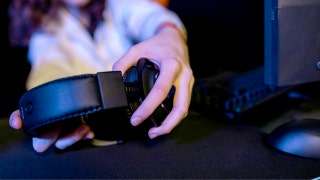
(Orion Pictures)
Cyborg alert!
Indian researchers may have brought the fictional man/machine one step closer to reality, devising innovative new electronic components -- made from human blood. They speculate that circuitry to link human tissues and nerve cells directly to an electronic device, such as a robotic limb or artificial eye, might one day be possible thanks to the development of these biological components.
Writing in the International Journal of Medical Engineering and Informatics, the Indian researchers describe creation of a "memristor" -- an electronic component similar to a resistor but able to carry varying amounts current rather than a fixed amount.
The esoteric electric circuit was merely theoretical until 2008, when HP scientists built one in their labs. S.P. Kosta of the Education Campus Changa in Gujarat and colleagues have now explored the possibility of creating a liquid memristor from human blood.
They constructed the biological memristor in a laboratory using a 10-milliliter test tube filled with human blood held at 98.6 Fahrenheit (37 Celsius) into which two electrodes are inserted; appropriate measuring instrumentation was attached. The experimental memristor shows that resistance varies as voltage sent through it changed. The device retained a specific level of resistance for at least five minutes -- the reason for the name "memory resistor."
Having demonstrated memristor behavior in blood, the next step was to test for the same behavior in a device through which blood is flowing -- which Kosta also managed to do.
He plans to develop a version of the device that combines several memristors to carry out a specific logic function.








































